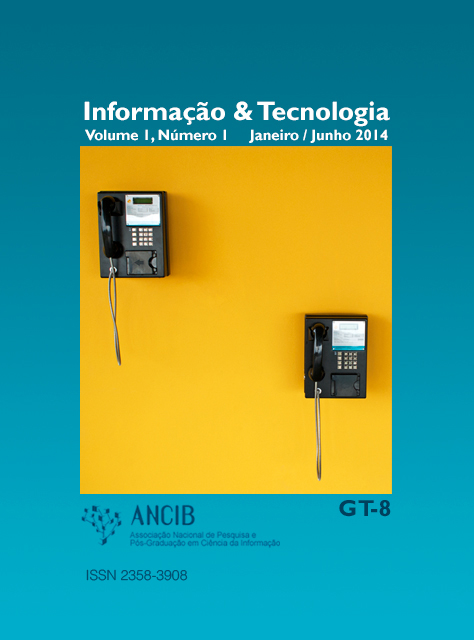Information organization in medical records: a Popperian approach
Abstract
Medical records are crucial resources for the entirety of standard healthcare practice. The amount, variety and complexity of data contained in records stored in medical institutions have required the use of information systems, with the aim to better meet the expectations of healthcare professionals and patients. In recent years, two approaches for information organization have been widely adopted to provide basis for medical information systems: ontologies and healthcare information models. In this paper, we develop a framework based on the theory of Three Worlds by Karl Popper in order to explain the processes that take place when medical records are created and manipulated in an encounter between a physician and a patient. Using this framework, we are able to distinguish different kinds of data available in medical records, which provides a better understanding of medical documentation. This increases the possibility of using such documentation as a data source for the previously mentioned approaches for information organization. The proposed framework allows the identification of four kinds of data and then it is tested in a description of a real clinical case. Finally, we present remarks and recommendations about the use of the identified kinds of data in the scope of medical information systems.
Downloads
References
ABBOTT, R. Subjectivity as a concern for information science: a popperian perspective. Jour-nal of Information Science, London, v. 30, n. 2, p. 95-106, Apr. 2004.
ALMEIDA, M. B.; BARBOSA, R.R. Ontologies in knowledge management support: a case study. Journal of the American Society of Information Science and Technology, New York, v.60, n. 10, p. 2032-2047, Oct. 2009.
BAKER, P. G. et al. An ontology for bioinformatics applications. Bioinformatics, Oxford, v. 15, n.6, p. 510-520, Feb. 1999.
BAWDEN, D. The three worlds of health information. Journal of Information Science, London, v. 28, n. 1. p. 51-62, Feb. 2002.
BICKLEY, L. S.; SZILAGYI, P. G. Bates' guide to physical examination and history taking. New York: Lippincott Williams & Wilkins, 2009.
BODENREIDER, O.; SMITH, B.; BURGUN, A. The ontology-epistemology divide: a case study in medical terminology. In: CONFERENCE ON FORMAL ONTOLOGY IN INFORMATION SYSTEMS, 3., 2004, Turin. Anais... Turin: IOS Press, 2004. p. 185-195.
BRINKMAN, R. R. et al. Modeling biomedical experimental processes with OBI. Journal of Bi-omedical Semantics, London, v. 1, n. 22, 2010. Supplementum 1.
FUCHS, N. E. et al. Attempto controlled english: a knowledge representation language reada-ble by humans and machines. Reasoning Web LNCS, Malta, 3564, p. 213-250, Jul. 2005.
GALVÃO, M. C. B.; RICARTE, I. L. M. Prontuário do paciente. Rio de Janeiro: Guanabara Ko-ogan, 2012.
GRENON, P.; SMITH, B.; GOLDBERG, L. Biodynamic ontology: applying BFO in the biomedi-cal domain. Studies in Health Technology and Informatics, Amsterdan, v. 102, p. 20-38, Feb. 2004.
HAUX, R.; KNAUP, P.; LEINER, F. On educating about medical data management: the other side of the electronic health record. Methods of Information in Medicine, Stuttgart, v. 46, n. 1, p. 74-79, Feb. 2007.
MACLEOD, Mary C.; RUBENSTEIN, Eric M. Universals. In: INTERNET Encyclopedia of Phi-losophy. Disponível em: <http://www.iep.utm.edu/universa/>. Acesso em: 28 jun. 2011.
MEZZOMO, A. A. Serviço de prontuário do paciente: organização e técnica. São Paulo: Cen-tro São Camilo de Desenvolvimento da Saúde, 1982.
MILLER, A. Realism. In: STANFORD Encyclopedia of Philosophy. Disponível em: <http://plato.stanford.edu/entries/realism/>. Acesso em: 25 jul. 2011.
MINISTÉRIO DA SAÚDE. Gabinete do ministro, 2011. Portaria nº 2.073, de 31 de agosto de 2011. Disponível em: <http://bvsms.saude.gov.br/bvs/saudelegis/gm/2011/prt2073_31_08_2011.html>. Acesso em: 20 dez. 2011.
MUNN, K.; SMITH, B. Applied ontology: an introduction. Frankfurt: Ontos Verlag, 2008.
POPPER, K.R.; ECCLES, J.C. The self and its brain: an argument for interactionism. Berlim: Springer Verlag, 1977.
POTTIER, P.; PLANCHON, B. Description of the mental processes occurring during clinical reasoning. Revue De Medecine Interne, Issy-Les-Moulineaux, v. 32, n. 6, p. 383-390, Jun. 2011.
ROSS, J.J.; VAIDYA, A.; KAISER, U.B. Lying low. New England Journal of Medicine, 2011. Disponível em: <http://www.nejm.org/multimedia/interactive-medical-case>. Acesso em: 23 abr. 2012.
SCHEUERMANN, R.H.; CEUSTERS, W.; SMITH, B. Toward an ontological treatment of dis-ease and diagnosis. In: 2009 American Medical Informatics Association SUMMIT ON TRANSLATIONAL BIOINFORMATICS, 2009. San Francisco. Anais... San Francisco: Ameri-can Medical Informatics Association , 2009. p. 116-120.
SCHULZ, S.; BROCHHAUSEN, M.; HOEHNDORF, R. Higgs bosons, mars missions, and uni-corn delusions: how to deal with terms of dubious reference in scientific ontologies. In: INTERNATIONAL CONFERENCE OF BIOMEDICAL ONTOLOGIES. 2., 2011. Buffalo. Anais... Buffalo: State University of New York, 2011. p. 183-189.
SCHULZ, S. et al. Bridging the semantics gap between terminologies, ontologies, and infor-mation models. Studies in Health Technology and Informatics, Freiburg, v. 160, n. 2, p. 1000-1004, Jan. 2010.
SMITH, B. Beyond concepts: ontology as reality representation. In: CONFERENCE ON FORMAL ONTOLOGY IN INFORMATION SYSTEMS, 3., 2004, Turin. Anais... Turin: IOS Press, 2004. p. 73-84.
SMITH, B. From concepts to clinical reality: an essay on the benchmarking of biomedical ter-minologies. Journal of Biomedical Informatics, New York, v. 39, n. 3, p. 288-298, Jun. 2006.
SMITH, B. et al. The OBO Foundry: coordinated evolution of ontologies to support biomedical data integration. Nature Biotechnology, Amsterdan, v. 25, n. 11, p. 1251-1255, Nov. 2007.
SMITH, B.; CEUSTERS, W. Ontological realism: a methodology for coordinated evolution of scientific ontologies. Applied Ontology, Philadelphia, v. 5, p. 139-188, Nov. 2010.
VICKERS, A.J.; BASCH, E.; KATTAN, M.W. Against diagnosis. Annals of Internal Medicine, Cleveland, v. 149, n. 3, p. 200-203, Aug. 2008.



